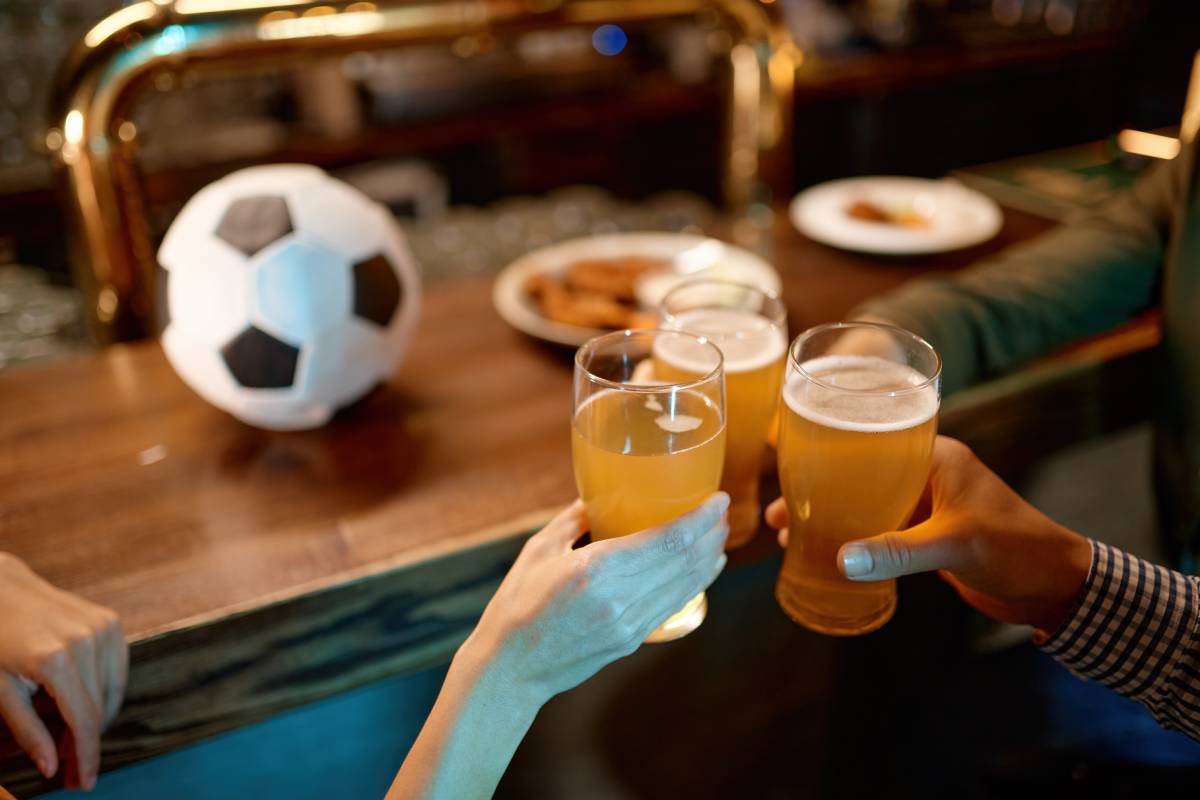In Germany, football is more than just a sport it’s a cultural celebration, often accompanied by passionate cheers, fan energy, and a cold beer. For many, enjoying a beer during a match is a cherished tradition.
However, the rules surrounding alcohol consumption in stadiums, particularly the sale and drinking of beer, can be complex.
This article covers everything you need to know about drinking beer at football games in Germany, from the laws on alcohol in stadiums to the legal drinking age and Germany’s iconic beer culture.
Whether you’re a first-time visitor or a regular fan, understanding these regulations and customs is essential for enjoying the experience.
Alcohol in Football Stadiums: A Cultural Tradition
Football, beer, and even cocktails are important parts of German culture, with passionate fans enjoying drinks during matches. Beer is generally allowed in most stadiums, but restrictions may apply during high-risk or international games.
Some clubs have rules like limiting beer sales during the first half or allowing alcohol only in certain areas. In some cases, cocktails may also be allowed in designated sections. These rules ensure safety and crowd control while letting fans enjoy the event responsibly.
The German Beer Law: What You Need to Know
In Germany, beer is both popular and regulated by the German Beer Purity Law, established in 1516. Initially, it allowed only water, barley, and hops in brewing. While it now includes yeast and other ingredients, it remains a symbol of German beer quality.
The law, created in Bavaria to ensure quality and protect bread prices, applies to all beers sold in Germany, including in football stadiums, ensuring strict standards for taste and safety. Despite discussions on modernization, it remains a key part of Germany’s beer culture.
Can You Drink Beer at Any Age in Germany?
In Germany, the legal drinking age for beer is 16, allowing those 16 and older to purchase and consume beer, including in football stadiums. For beverages with an alcohol content above 15% ABV, the legal drinking age is 18.
These age restrictions are strictly enforced in stadiums, with age checks by vendors and staff monitoring for underage drinking. While alcohol consumption is widely accepted, these laws aim to protect minors and encourage responsible drinking.
Why Are Age Restrictions Important?

Age restrictions for alcohol consumption are crucial for protecting young people’s health and ensuring public safety. These laws help prevent minors from engaging in drinking behaviors that can negatively affect their physical and mental development, such as increased risk of addiction and impaired cognitive function.
Moreover, age restrictions maintain public safety by ensuring that only those old enough to make responsible decisions can consume alcohol, reducing the risk of impaired judgment and disruptive behavior, especially in environments like football matches.
The Role of Alcohol in Football Culture
Beer consumption is a central part of football culture in Germany, fostering community and tradition. Fans often gather before and after matches to enjoy a drink, discuss the game, and bond over their shared love of football.
This beer culture extends to events like Euro 2024, where fans from around the world will enjoy Germany’s renowned beers. For international visitors, it’s important to understand the legal requirements and cultural expectations regarding alcohol consumption in stadiums to fully appreciate the experience.
Why is beer so important to Germans?
Cultural Tradition
Beer has been a part of German culture for centuries. The brewing tradition dates back to ancient times, and the famous German Beer Purity Law (Reinheitsgebot) of 1516 further solidified its role in the country’s heritage. Beer is deeply woven into German social life, from casual gatherings to large festivals like Oktoberfest.
Social Bonding
Beer plays a crucial role in bringing people together. Whether in beer gardens, pubs, or at football matches, it’s often shared among friends and family. Drinking beer is seen as a communal activity, enhancing the sense of togetherness.
Economic Importance
Germany is one of the largest beer producers in the world, with an extensive range of breweries and beer brands. The beer industry supports thousands of jobs, from brewing to distribution, making it an important sector of the economy.
Celebration and Tradition
Beer is a staple at many German celebrations and events, from festivals to holidays. The enjoyment of beer is a part of national pride and identity, with special beer varieties created for different occasions.
Conclusion
In conclusion, beer is much more than just a beverage in Germany it’s a key element of the country’s culture, tradition, and social life, especially in the context of football. From the passionate crowds at matches to the iconic German Beer Purity Law, which ensures quality and authenticity, beer holds a deep significance for both locals and visitors alike.
Understanding the regulations surrounding alcohol consumption in football stadiums, such as age restrictions and the rules of each venue, is essential for fully embracing the experience. Whether you’re attending a match or enjoying a cold beer at a beer garden, beer in Germany is a symbol of community, celebration, and national pride.
